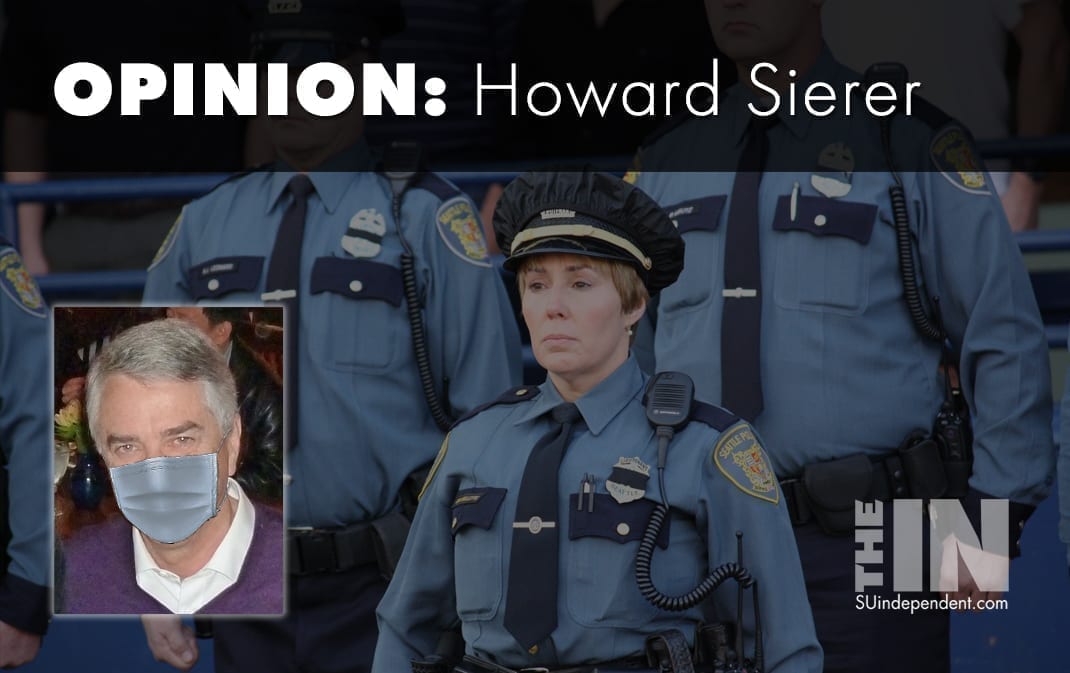
Police Restructuring That Makes Sense
Defunding the police is nonsense and for poor neighborhoods, suicide. What we need is police restructuring which makes sense.
Public officials have been addressing some of our country’s most persistent societal problems – mental illness, homelessness, substance abuse – by sending in armed police officers as if they were all-purpose social workers. Even domestic disputes, roaming dogs, noisy neighbors and young people “hanging out” get an armed police officer in response.
In his critically-acclaimed 1978 book, “Varieties of Police Behavior,” Harvard professor James Q. Wilson wrote: “The patrolman’s role is defined more by his responsibility for maintaining order than by his responsibility for enforcing the law.” That is even more the case today.
The majority of most police training is centered on legal basics and how to use force. Officers today walk around with a pistol, a taser, a baton, and handcuffs in addition to a citation book. As the old saying goes, if the only tool you have is a hammer, every problem looks like a nail.
This mismatch between police training and many of the problems they are sent to resolve is as frustrating for police as it is for those they are supposed to serve. Many would-be among the first to say they are being asked to do things for which they aren’t trained.
Police responses to many of these problems don’t resolve the underlying issue; they are called back time and again. For example, in Denver in an average year, 250 homeless people are arrested 1,500 times, spend about 14,000 days in jail, go to detox 2,200 times, and visit the emergency room 500 times.
A disproportionate number of social problems occur in poorer neighborhoods. Yet these same neighborhoods also have a disproportionately high rate of real crime: robbery, assault and murder.
In spite of rightful anger expressed when police brutality occurs – and it does thanks to the few bad apples – far more residents of poorer neighborhoods want increased police presence rather than less as confirmed by Gallup polls taken in 2015 and again in 2019.
So, what to do? Two initiatives appeal to me: Deploy a new type of first responder and harness police unions.
Several cities are experimenting with specialized, unarmed first responders. Needed skills include mediation training to defuse situations that could lead to violence, social work training to diagnose substance abuse, mental illness, and dysfunctional relationships and some basic emergency medical skills.
Memphis has a “Crisis Intervention Team.” Houston diverts certain 911 calls to its “Crisis Call Diversion Program.” San Francisco’s mayor announced that the city will begin sending unarmed responders when calls are not reporting a crime.
A second important change is to bridle police unions. Police union contracts often require that misconduct complaints be heard by arbitrators. Shockingly, in many cases, those arbitrators are selected by the police union itself!
Police point out that many complaints against them are unwarranted and that they need representation. But that representation has too often resulted in problem officers being shielded from discipline of any kind.
Minneapolis, where George Floyd was murdered, is a case in point. In the last eight years, the city’s Office of Police Conduct Review has received 2,600 complaints but only 12 have resulted in any form of discipline. The most severe was 40 hours without pay.
According to Minneapolis Mayor Jacob Frey, police union bargaining and arbitration prevent the city from holding officers accountable for misconduct. He says, “Unless we are willing to tackle the elephant in the room – which is the police union – there won’t be a culture shift in the department.”
Stephen Rushin of the Duke University law faculty analyzed 178 police union contracts and concluded that a “lack of corrective action in cases of systemic officer misconduct is, in part, a consequence of public-employee labor law.”
Incompetent public employees of all kinds are notoriously difficult to fire. Making things worse, Rushin found that about half of all police collective bargaining contracts required disciplinary records to be removed after a certain period of time. An officer’s complaint history is often not available when subsequent complaints are received.
Further, Rushin notes that the average police department gives officers up to four layers of appellate review. A quarter of all officers fired for misconduct between 2006 and 2017 were reinstated, usually by arbitrators.
Democratic mayors like Minneapolis’ Frey find themselves in a quandary. Democrats have long been supporters of public employee unions of all kinds and rely heavily on them for campaign donations.
It’s about time that Democrats recognized the inherent conflict of interest when public officials supposedly bargain at arm’s length with their campaign contributors. Instead, move serious police misconduct charges out of arbitration and into the civil justice system.
Police forces are and always will be composed of imperfect people. The vast majority are dedicated public servants who strive to “serve and protect.” It’s time to focus them on what they are trained to do and send the bad apples packing.
Viewpoints and perspectives expressed throughout The Independent are those of the individual contributors. They do not necessarily reflect those held by the staff of The Independent or our advertising sponsors. Your comments, rebuttals, and contributions are welcome in accordance with our Terms of Service. Please be respectful and abide by our Community Rules. If you have privacy concerns you can view our Privacy Policy here. Thank you!
Click here to submit an article, guest opinion piece, or a Letter to the Editor





Thank you, Howard!
I worked as an asst. DA for six years and as the elected DA for a four year term in Salt Lake County. The issue of policing the police came up many times during these 8 years. The problem with having the DA’s office handle them is that the DA’s office works closely with the police virtually every day and the necessity of having a close, trusting relationship is critical. I believe that what is needed is a separate, well qualified, independent committee to handle such complaints. Such a committee would contain people well qualified in the areas of law enforcement, prosecution and human behavior. Such a group could then render quality decisions without excessive outside influence. I appreciate Howard’s article addressing the issue. We need a better solution for our state than what we have. The DA-police relationship currently does not solve the problem. An independent group is needed.
I’ll defer readily to the voice of experience. Paul and I are on the same page for getting serious police complaints out of arbitration controlled — or heavily influenced — by the police union itself. The union has a rightful and needed role in representing officers who do a difficult job, one that inevitably will result in friction with some they encounter. But acting as judge and jury is fraught with an inherent conflict of interest.
I never thought I’d see the day where I would copy one of Howard Sierers’s columns to use as reference. I actually agree with him! Maybe there is hope in the screwed-up world of American politics after all. Small steps…